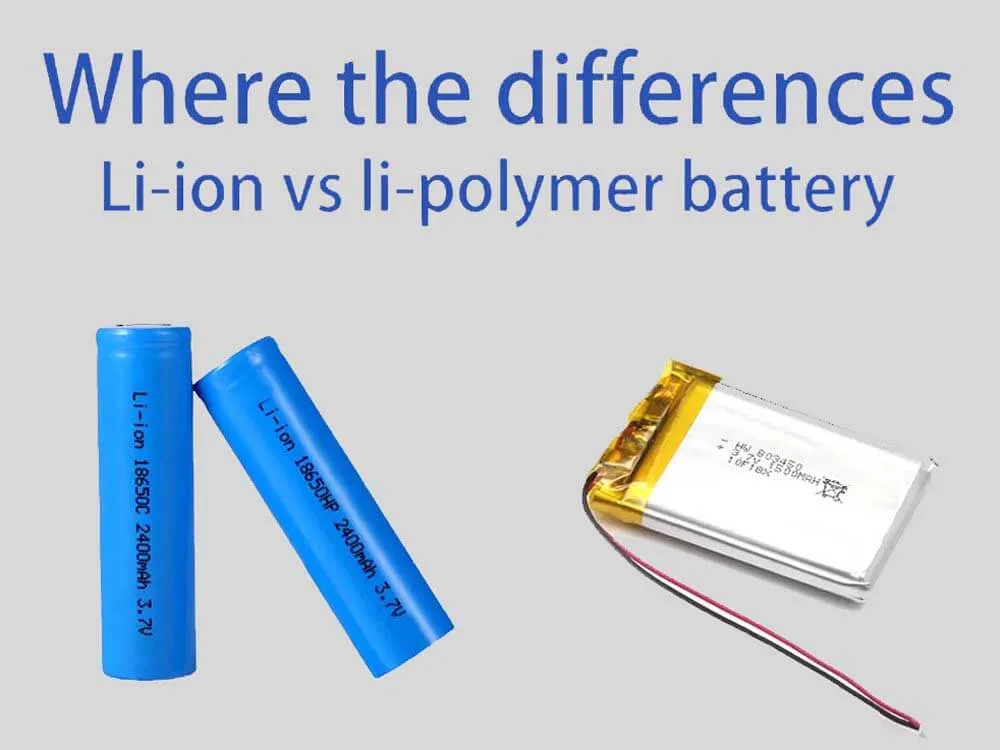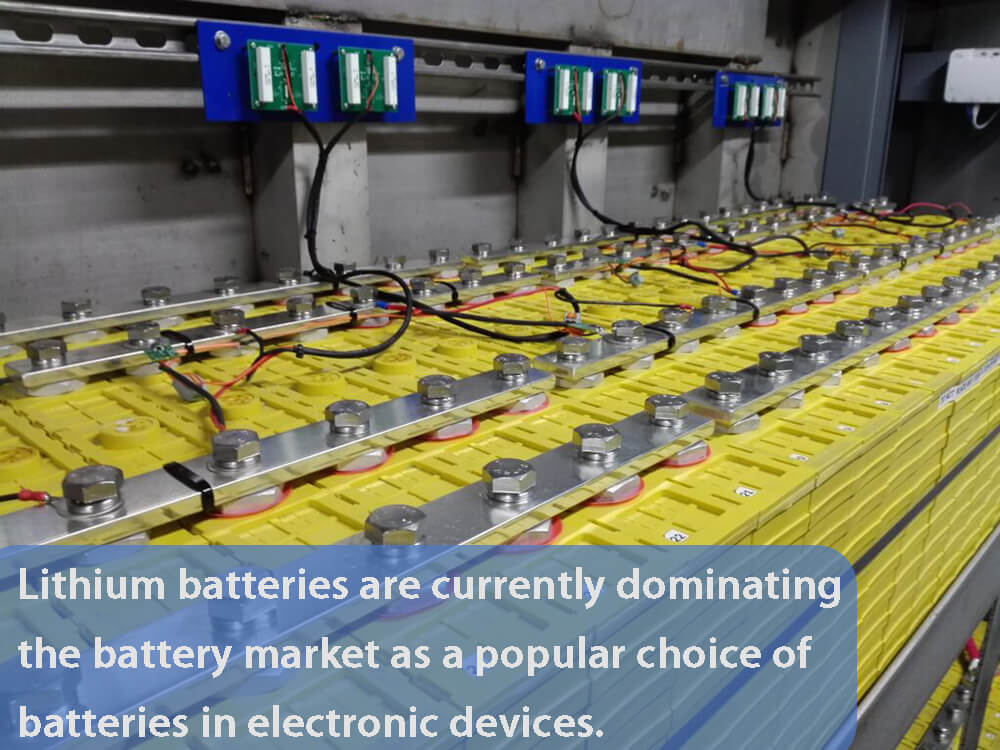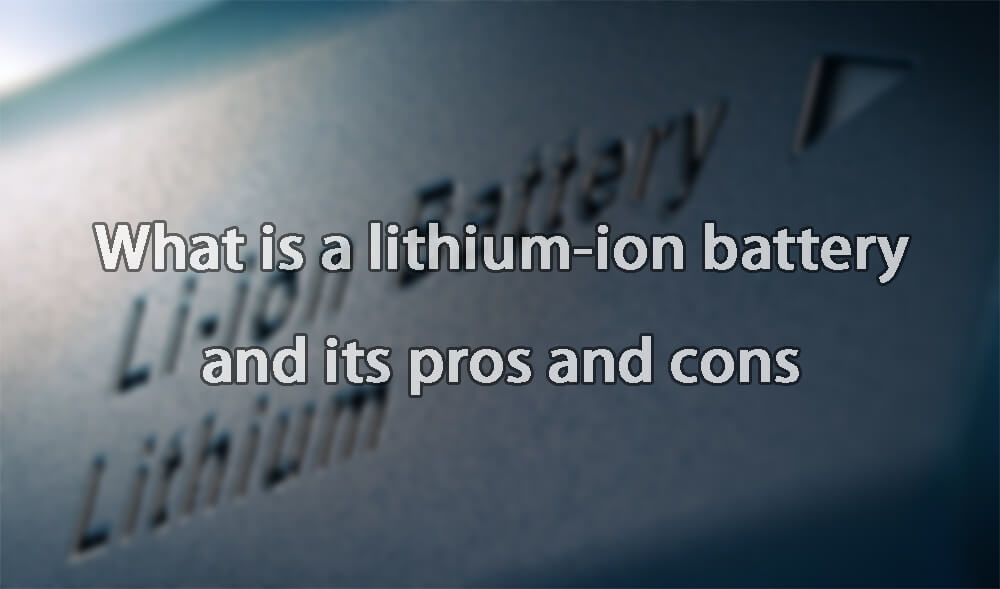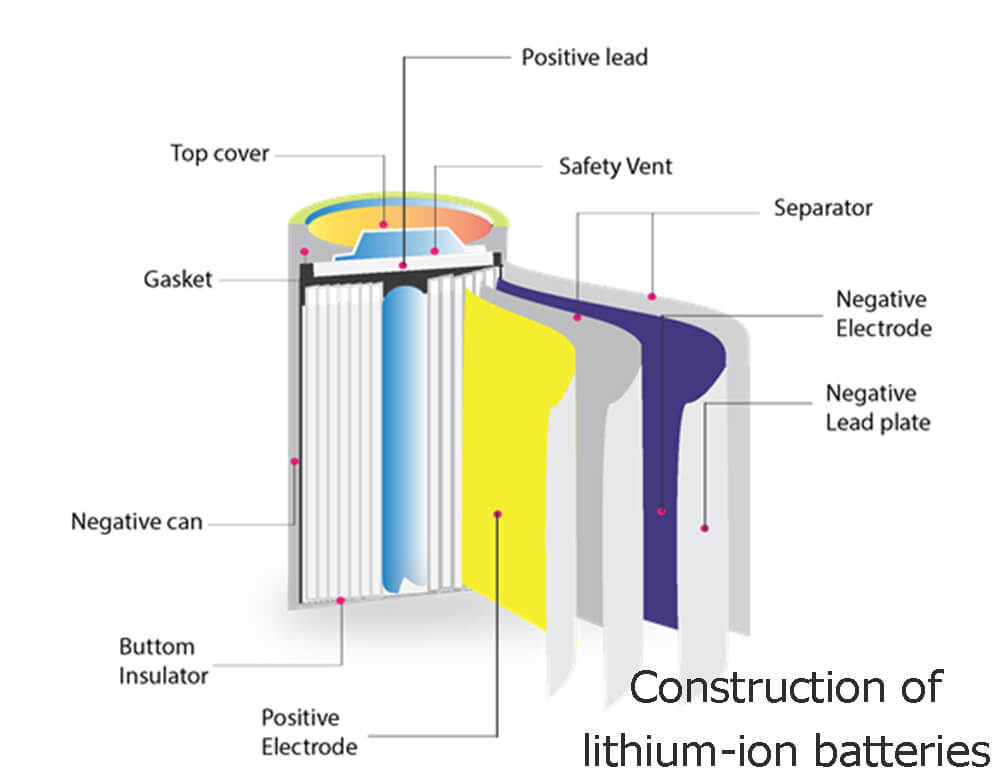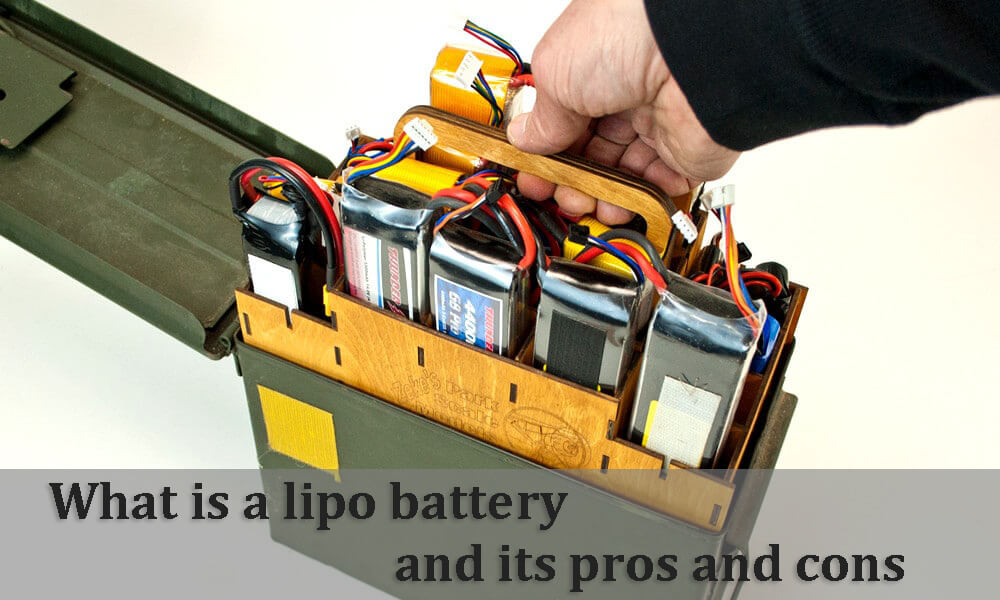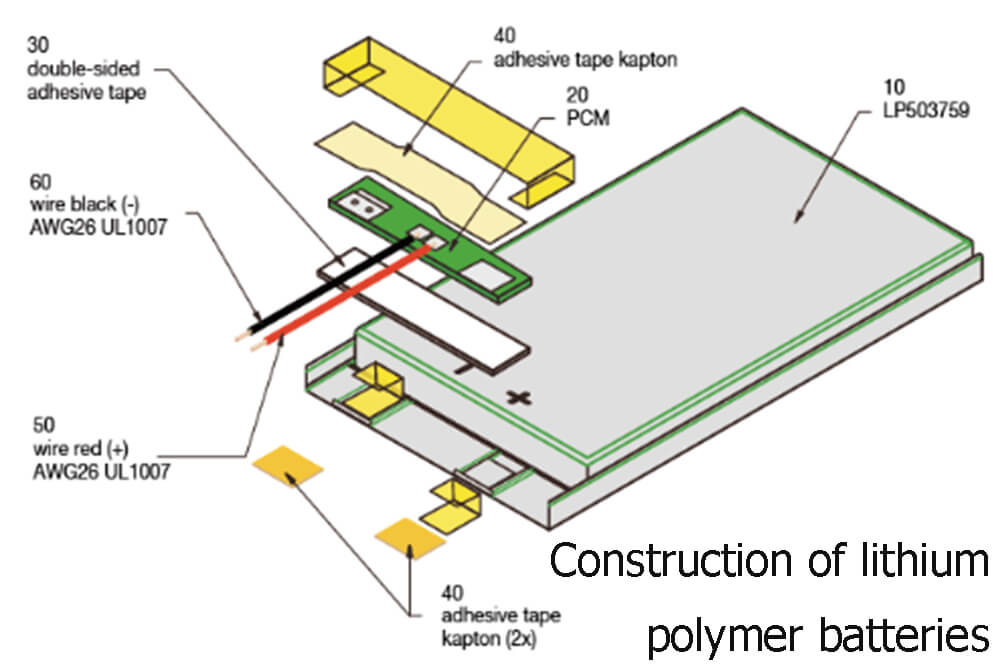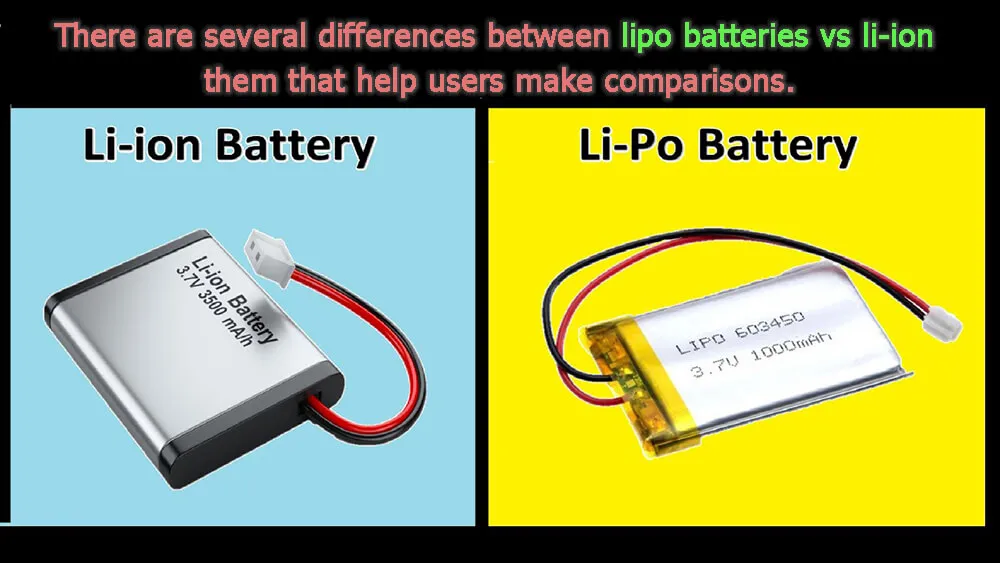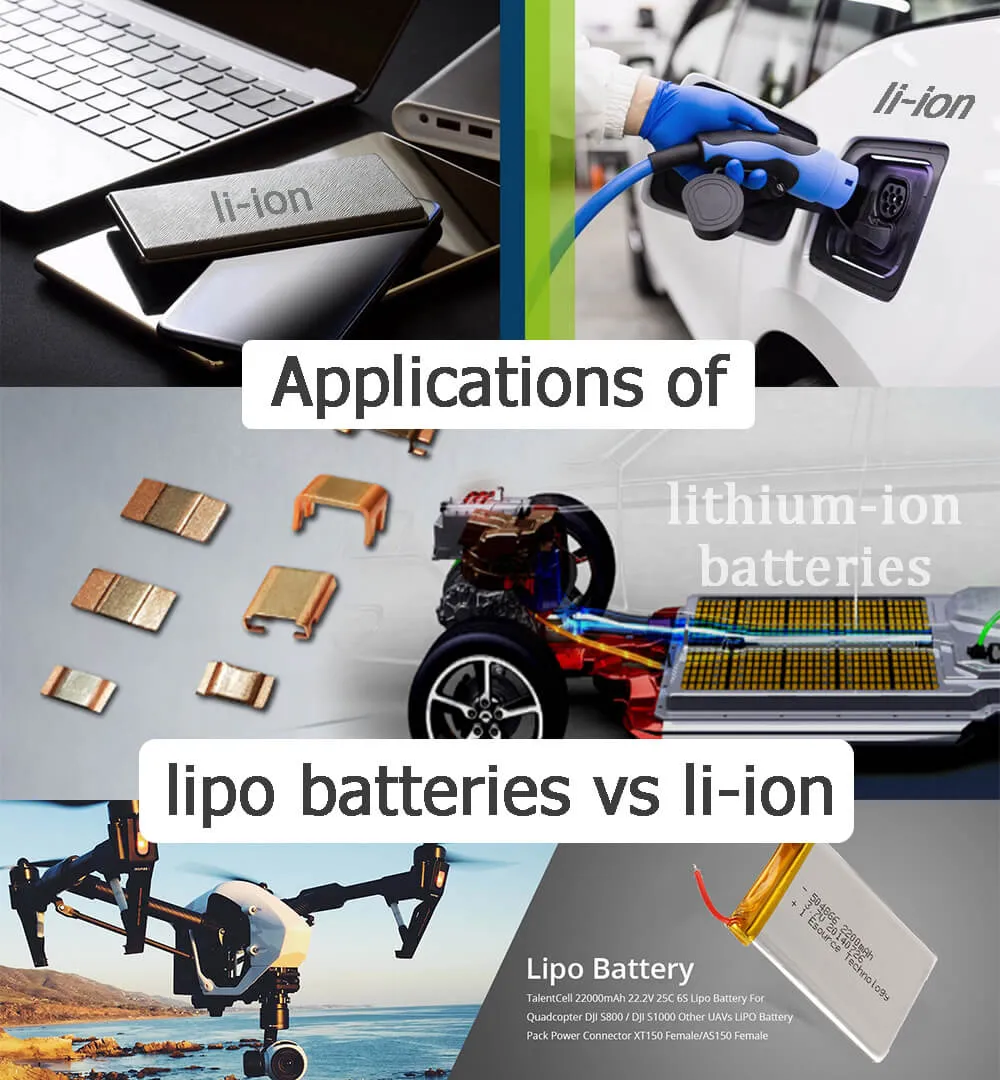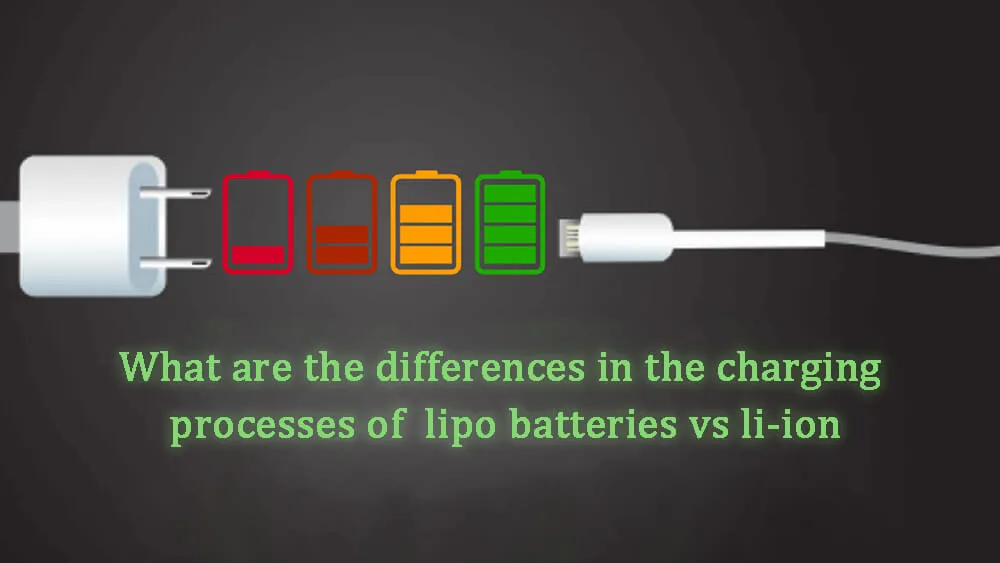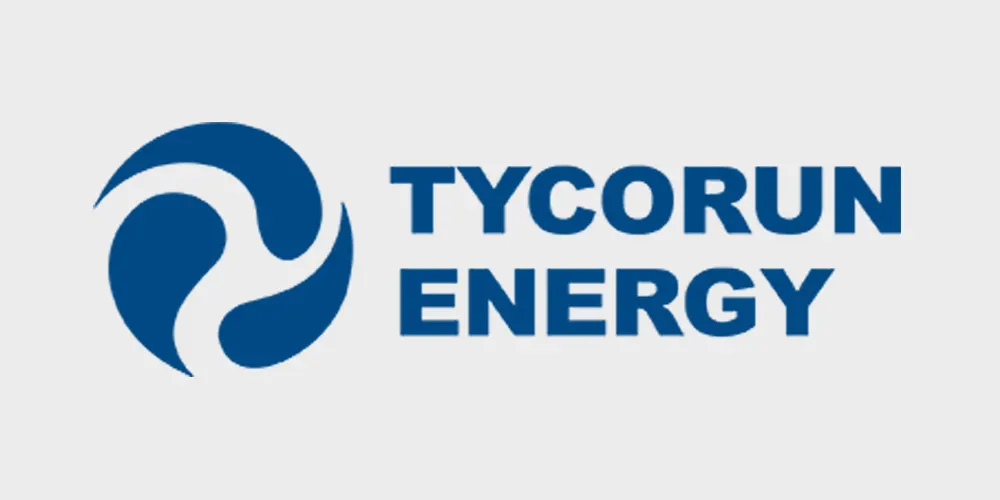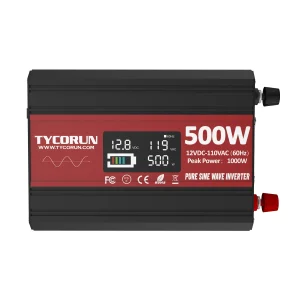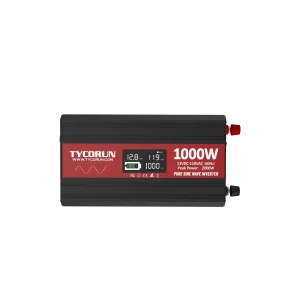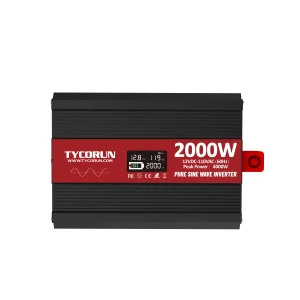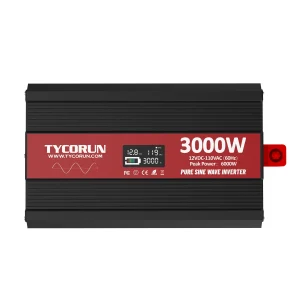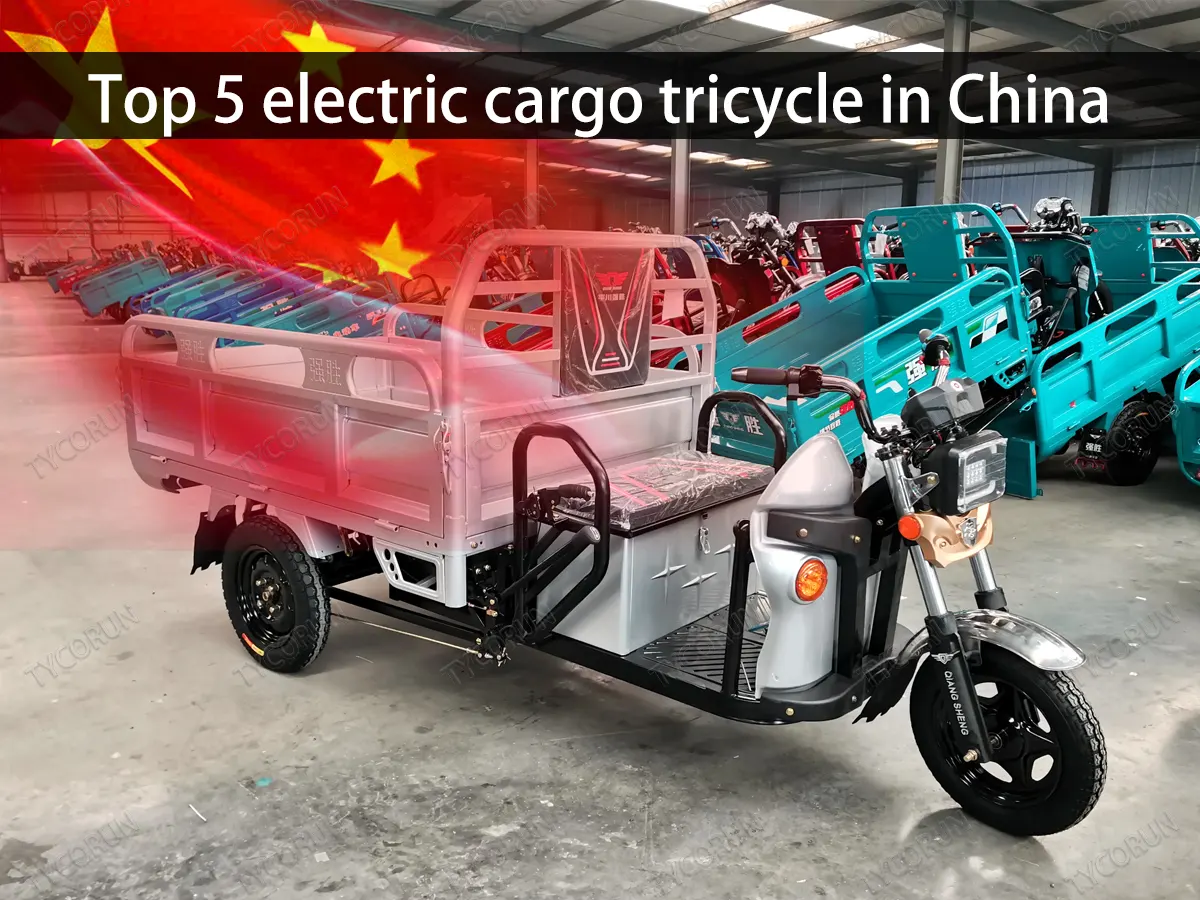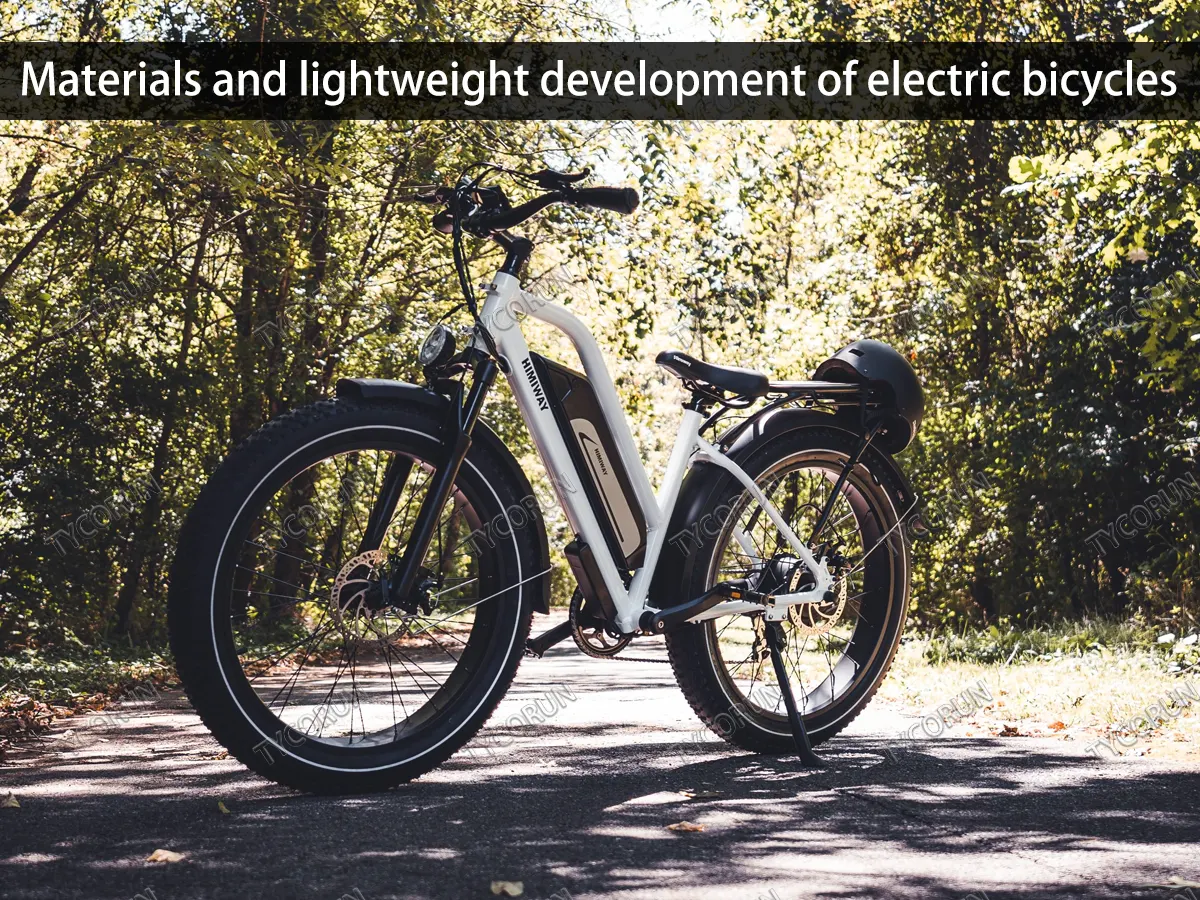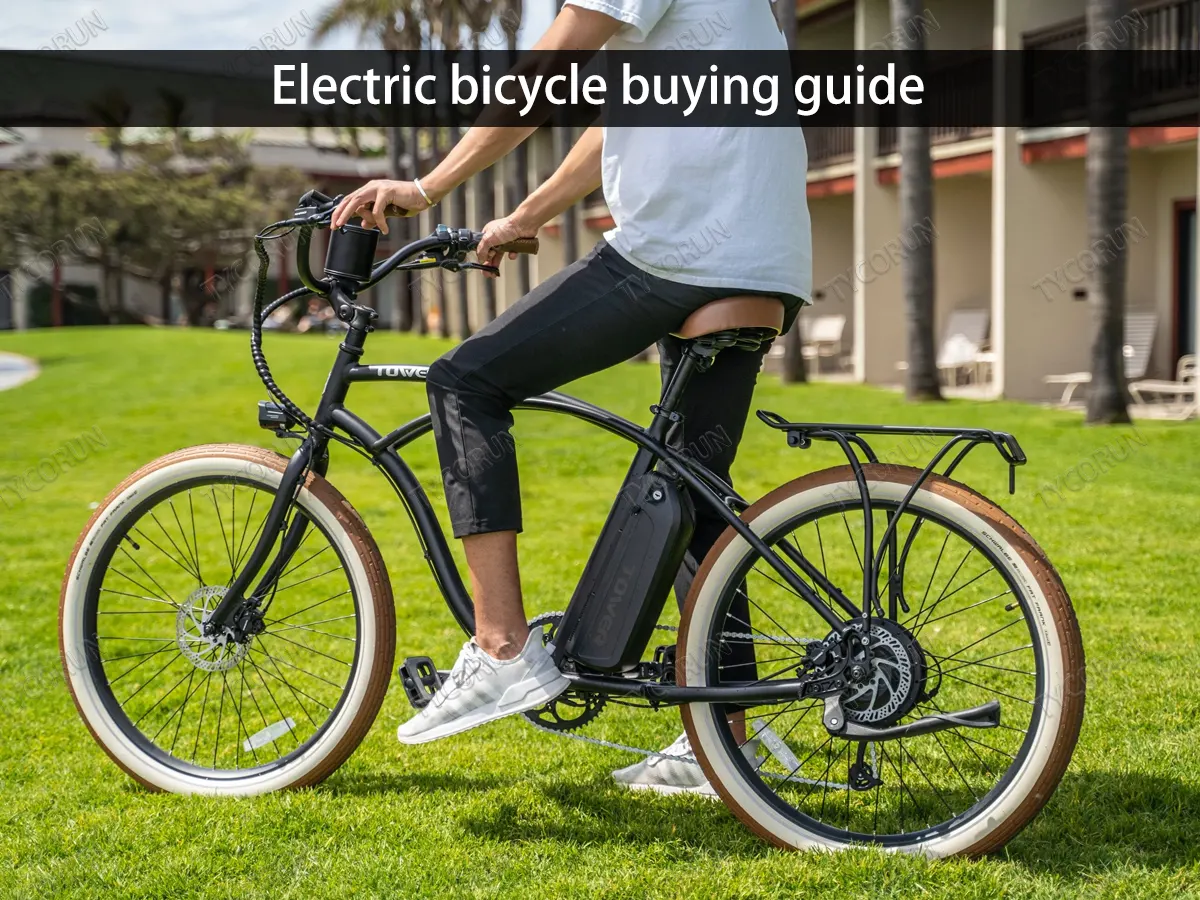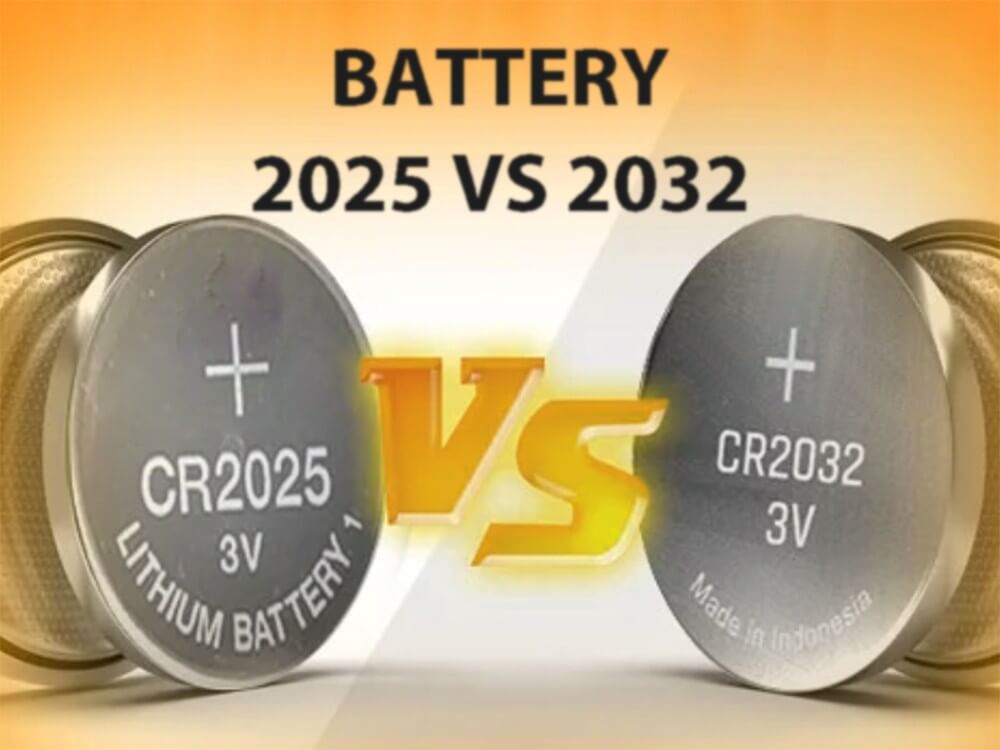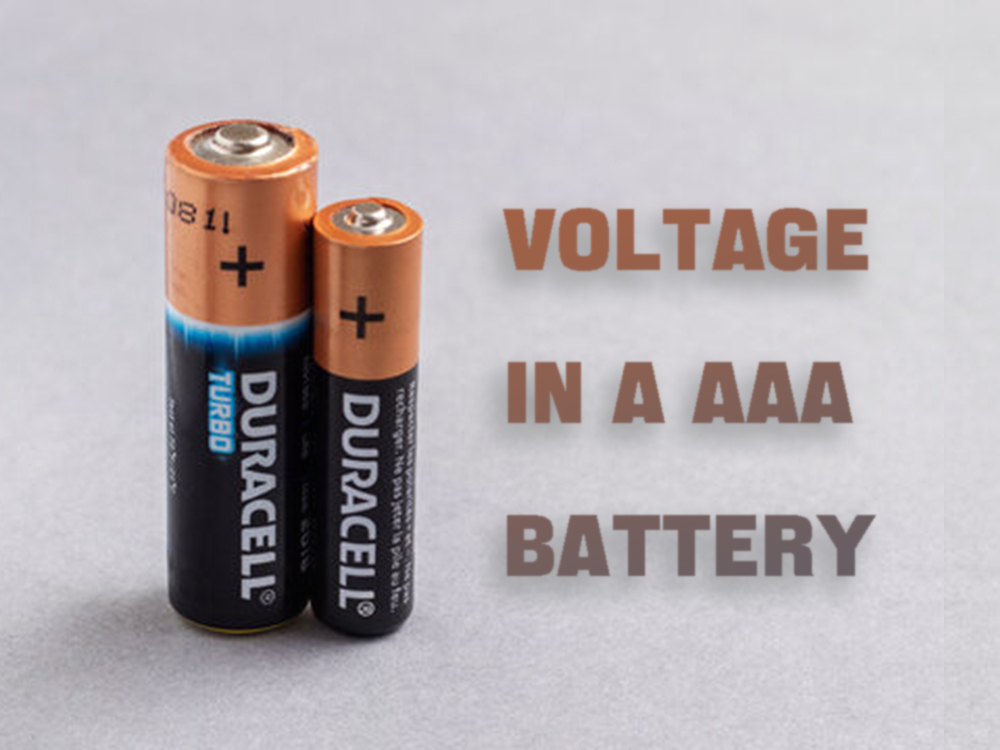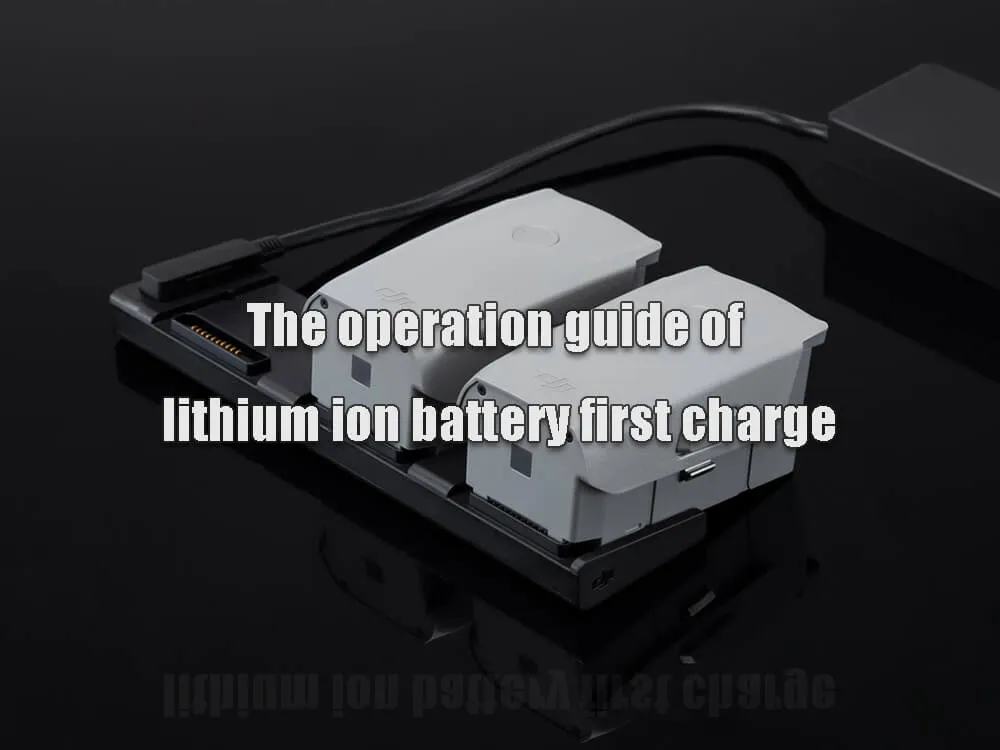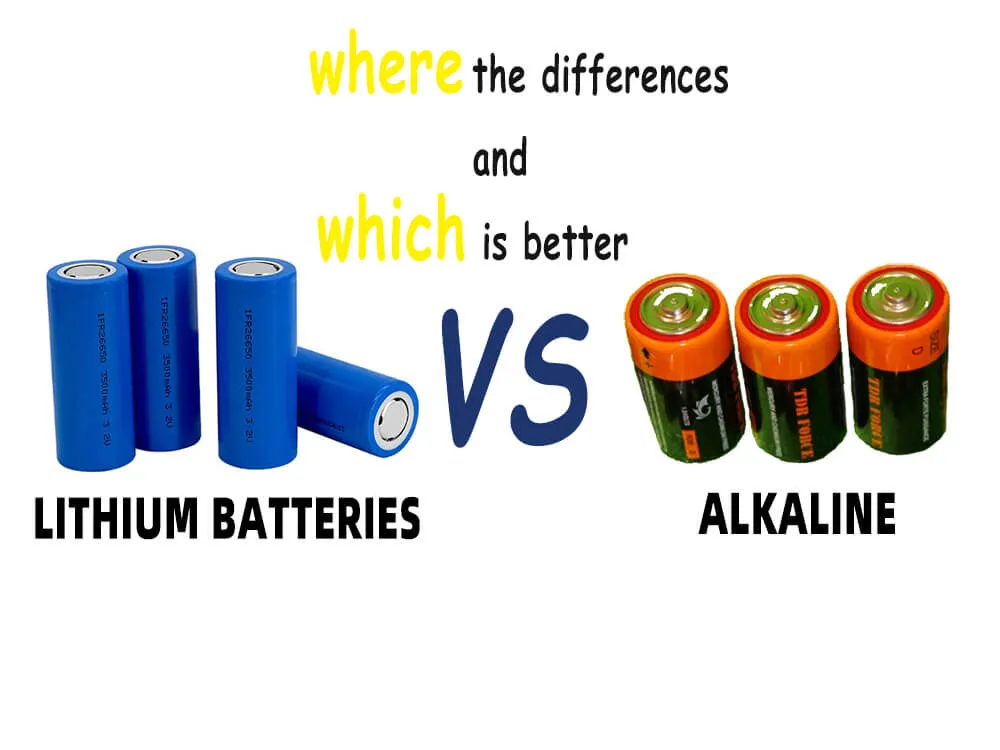Compare lipo batteries vs li-ion - where the differences
- What is a lithium-ion battery and its pros and cons
- What is a lipo battery and its pros and cons
- Compare lipo batteries vs li-ion-where the differences
- Which one should you choose
- Applications of lipo batteries vs li-ion
- FAQs on lipo batteries vs li-ion
- Can li-polymer explode
- How to differentiate between lipo batteries vs li-ion when buying them
- How to properly use lipo batteries vs li-ion
- What are the differences in the charging processes of lipo batteries vs li-ion
- Should lipo batteries be overcharged
- When should i charge my lipo battery
- What lasts longer lipo batteries vs li-ion
- Can i charge a li-ion battery with a lipo charger
- Which battery is safer lipo batteries vs li-ion
Lithium batteries are currently dominating the battery market as a popular choice of batteries in electronic devices. We also learned the advantages of lithium ion from lithium battery vs other batteries. Lithium-ion batteries are arguably the most popular. This is due to several factors including their low self-discharge rates, environmental sustainability, lightweight, size versatility, high open-circuit potentials, fast charging, high energy density, and battery effects.
Lithium polymer batteries on their part use polymer electrolyte instead of liquid. This difference in content is a major factor in the differences between the two lithium batteries.
Liquid and polymer electrolytes are a popular choice in lithium-ion batteries because they possess a high ionic conductivity. In the rest of this article, we will at lipo batteries vs li-ion and help you make a decision on the type of lithium battery to get.
What is a lithium-ion battery and its pros and cons
Lithium-ion batteries have been widely used for a while now and have even taken part in the revolution of devices such as electronics. Their high ionic conductivity makes them a popular choice among battery manufacturers and their consumers.
They also have several other advantages including a high charge storage capacity, and a relatively longer lifespan in comparison to other battery types such as the Lead-acid battery, and NiMH battery, and are also more cost-efficient in the long term making them the preferred battery types for mass manufacturing.
Additionally, lithium-ion batteries have a high power density, making them usable in robust applications such as in electric vehicles, charge storage apparatus, and large-scale electronic devices.
Advantages
The following are some advantages of lithium-ion batteries that make them a popular choice among batteries:
●They have a high ionic conductivity making them a very popular option.
●They have a long lifespan of between 1500-4000 life cycles
●They are cheaper than lithium polymer batteries
●They have a relatively higher charge storage capacity when compared with many other battery types
●They are effortless to maintain and do not require any specialized care
Disadvantages
●One of the biggest disadvantages of lithium-ion batteries is the safety concerns they raise. Safety issues such as organic solvent reaction, electrolyte leakage, and other issues such as susceptibility to an explosion in high temperatures have been a hindrance to the marketability of lithium-ion batteries with liquid electrolytes. At the moment, most lithium-ion batteries now use del electrolytes, so leaks are no longer a problem.
●Lithium-ion batteries also get very unstable in very high temperatures, posing a safety concern when used in devices that overheat
Construction of lithium-ion batteries
Lithium-ion batteries are usually packaged in a cylindrical, or rectangular case made of either aluminum or stainless steel. These cases are robust enough to protect the battery from any physical damage but have the disadvantage of increasing the weight of the battery.
The inflexible nature of the cases significantly decreases the size and shape versatility of the batteries that can be manufactured. Lithium-ion batteries are also constructed using numerous parts, enabling it to play a better performance to power a device.
The main components of a lithium-ion battery include an anode electrode, a cathode electrode, an electrolyte, and a separator between the anode and cathode to prevent physical contact between them. The electrolyte allows ion conductivity between the anode and cathode.
What is a lipo battery and its pros and cons
Lithium polymer batteries (popularly called LiPo batteries) are rechargeable batteries whose electrolyte is a lithium-ion polymer. They have several advantages that make them the preferred choice over other batteries including the lithium-ion batteries with liquid/ gel.
Some disadvantages of lithium-ion batteries with liquid electrolytes that hindered their demand and promoted lithium polymer batteries were based on safety concerns. These types of lithium-ion batteries experienced increased electrolyte leakage, battery solvent reactions, and increased susceptibility to explosions.
Advantages
LiPo batteries have several advantages over other types of batteries including lithium-ion batteries with glass and ceramic electrolytes and those with liquid electrolytes. One of the biggest benefits of using LiPo batteries is their enhanced safety features. These enables them to be less prone to safety incidents such as explosions and fires. Additionally, they possess a high level of processability and flexibility.
Another advantage is that sometimes solvent-free polymer electrolytes could be made resistant to dendrite formation or its growth minimized to a very small degree. Finally, LiPo batteries have a low self-discharge, they can store energy for a relatively long time when they are in storage or not in use.
Disadvantages
Some disadvantages of lithium polymer batteries include:
●They are relatively expensive
●They can easily cause swelling if they are not well taken care of
Construction of lithium polymer batteries
LiPos are delivered in prismatic pouches made of aluminum foil. One advantage of these pouches over the lithium-ion packages is that they are more flexible to construct. This advantage makes it easier to develop packages of different shapes and sizes. Another advantage is that they are more lightweight because of the use of aluminum foil instead of metal. Using the foil instead of the metal also makes LiPo batteries have a higher energy density than lithium-ion batteries.
There are several differences between lipo batteries vs li-ion them that help users make comparisons. Their differences are explained below based on categories such as lipo batteries vs li-ion physical structure, capacity, self-discharge rates, safety, power, lifespan, and cost.
Compare lipo batteries vs li-ion-where the differences
There are lipo batteries vs li-ion tructurally different. The most glaring difference is the electrolyte used in each of the batteries. Lithium-ion batteries make use of a gel while lithium polymer batteries make use of a polymer electrolyte.
While lithium-ion batteries are packaged in stainless steel or aluminum metal, lithium polymer batteries are packaged in aluminum foil making them more lightweight and flexible.
LiPo batteries can be made into different shape configurations because of their flexibility. The structure of LiPo batteries also makes them more resistant to electrolyte leakage.
This is because it is less likely for the polymer electrolyte to leak. There is also a higher possibility of anode and cathode electrolytes tomixingn lithium-ion batteries.
Capacity
When it comes to lipo batteries vs li-ion charging storage capacity, it depends on the battery’s specifications. lipo batteries vs li-ion both have different capacity specifications based on application scenarios.
Self-discharge
Lipo batteries vs li-ion have a lower self-discharge rate when compared to other types of batteries. They can store power for a longer time when they are in storage or not in use.
Safety
A noticeable difference in the lipo batteries vs li-ion debate is in their safety.
Lithium polymer batteries are generally safer than lithium-ion batteries. Their increased safety is owed to the fact that their structure prevents harmful explosions. Lithium-ion batteries, on the other hand, may explode and catch fire if used improperly or purchased with inferior products.
However, lithium polymer batteries should also be handled with a lot of care during charging, discharging, and storage because they could also cause explosions when they get punctured.
Power
Both lipo batteries vs li-ion have high power densities and can be used in robust applications, such as in electrical vehicles. However, lithium polymer batteries are the winner in this category because their power density is higher than that of lithium-ion batteries.
Lifespan
Lithium-ion batteries have a relatively longer lifespan when compared to lithium polymer batteries in lipo batteries vs li-ion.
However, lithium-ion batteries lose their charge storage capacity at a faster rate over time when compared to lithium polymer batteries.
Cost
One of the factors in lipo batteries vs li-ion that have made lithium-ion batteries desirable for years is their affordability. These batteries are less costly than lithium-polymer batteries of the same capacity.
Which one should you choose
Both lipo batteries vs li-ion come packed with their own advantages and disadvantages and making a choice between the two depends on your needs, preferences, and the tradeoffs that you are willing to accept.
If you can sacrifice the battery’s lifespan and charge storage capacity for increased power, when choose lipo batteries vs li-ion, you should definitely go for lithium polymer batteries. Conversely, you should opt for lithium-ion batteries of lipo batteries vs li-ion if you would place charge storing capacity and the battery’s lifespan over everything else.
Applications of lipo batteries vs li-ion
Lithium polymer batteries are usually used in applications that require a high gravitative energy density such as in drone cell phone and large-scale model trains. The battery weight is an important consideration in such applications.
The high ionic conductivity of lithium ion batteries makes them a popular choice for manufacturers and consumers everywhere. They are mostly used in electronic devices, electric vehicles, toys, and energy storage apparatus among other applications.
FAQs on lipo batteries vs li-ion
Can li-polymer explode
While lithium polymer batteries are much less likely to explode than lithium-ion batteries, they should be handled with a lot of care during charging, discharging, and storage because they could also cause explosions if they get punctured.
How to differentiate between lipo batteries vs li-ion when buying them
The biggest differentiator between lipo batteries vs li-ion that you can check while buying is their structure. Lithium-ion batteries are usually packaged in a cylindrical, button-shaped, or rectangular case made of either aluminum or stainless steel while LiPo batteries are packed in a pouch made of aluminum foil.
Li-ion batteries are also heavier than lipo batteries and lipo batteries are usually more flexible to shape and can hence be flatter than li-ion batteries.
How to properly use lipo batteries vs li-ion
The following are proper ways to use both lipo batteries vs li-ion:
●You should always store them with a 20%-80% charge to increase their life
●Charge them to less than 100%
●Remove the battery from the charger after it is fully charged since continuing to charge it will accelerate permanent capacity loss in the battery.
●For lipo batteries, ensure you do not discharge them below 3.0v per cell because this can cause permanent battery damage
●You should also be keen not to expose your lipo batteries to too much heat. For instance, do not charge your battery it is still warm from usage and do not use it if it is still warm from charging.
What are the differences in the charging processes of lipo batteries vs li-ion
●Charging lithium-ion batteries requires constant current (CC) charging followed by constant voltage (CV) charging. For constant current, you place the battery in the charger where it charges at a constant high current until its maximum rated voltage capacity is reached.
After that, the constant voltage process starts where the voltage is kept constant at the maximum while the current is slowly lowered to a minimum and then removed. The battery is thus charged.
●You should use a lipo balance charger to charge lipo batteries because it is manufactured to cater to your battery’s needs. Also, when charging the battery, you should not charge it past its maximum voltage capacity.
The balance charger can read the voltage of your battery and notify you when it is at its full capacity so that you can remove it from the charger.
Should lipo batteries be overcharged
No, Whichever lipo batteries vs li-ion, you should never overcharge your battery. Overcharging LiPo batteries is unsafe and damages it, reducing its longevity.
When should i charge my lipo battery
You should charge your LiPo battery when it nears 20 percent capacity if you intend to continue using it because once you use it below this value, the battery life will be affected.
What lasts longer lipo batteries vs li-ion
Lithium-ion batteries have a longer lifespan than lithium polymer batteries. Their lifespan ranges between 1500-4000 charge cycles.
Can i charge a li-ion battery with a lipo charger
Yes, it is possible and safe to charge a li-ion battery with a LiPo charger as long as both of the same have the same power and maximum voltage ratings.
Which battery is safer lipo batteries vs li-ion
Lithium Polymer batteries are safer than lithium-ion batteries. It is less likely for their electrolyte to leak causing explosions in comparison to lithium-ion batteries.
For comparison of lithium ion and other types of batteries, please refer to li-ion vs ni-mh battery and lithium vs sodium battery, etc.

